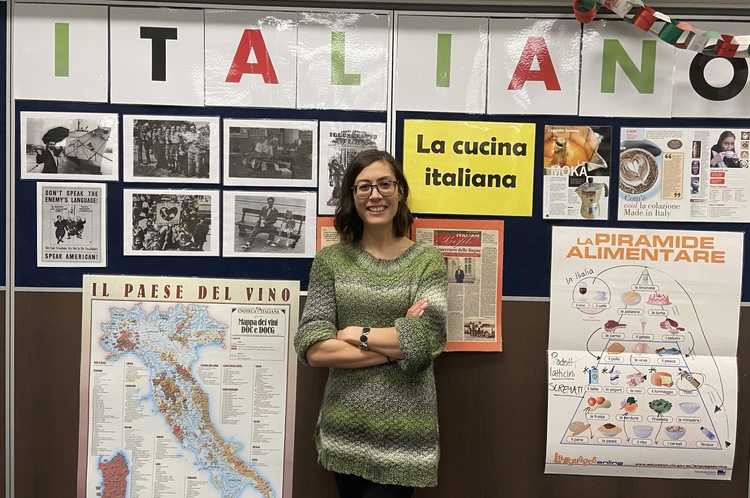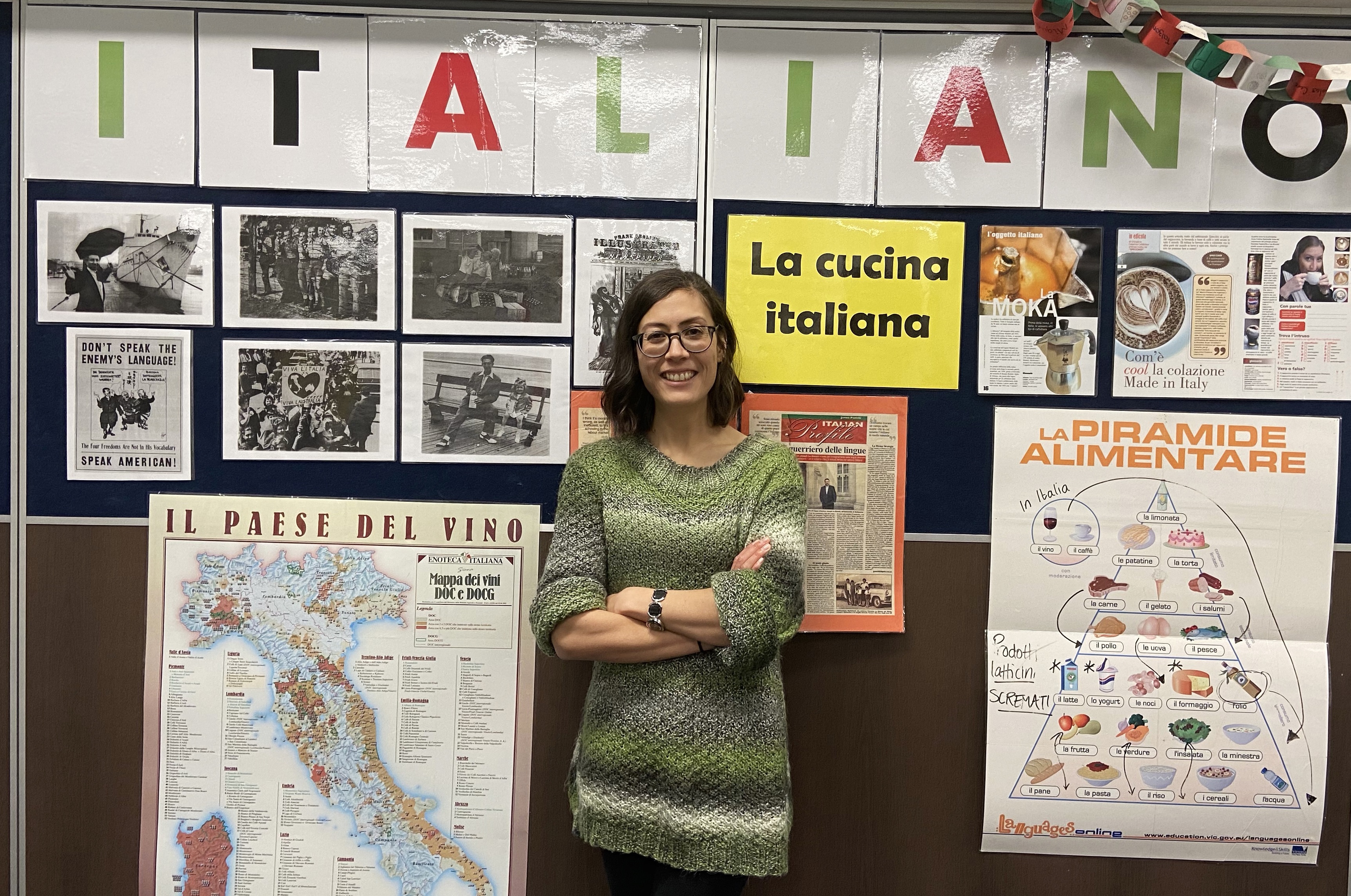What did you study?
When I was in school, I wanted to study medicine or fashion.
In the end, not being able to imagine doing something non-creative, I decided to study fashion (specifically knitwear) at Nottingham Trent University, in England.
I worked in the fashion industry for seven years; then I felt the need for a change.
I had a break, travelling extensively and studying Chinese, then returned to study at university here in Melbourne, to become a foreign languages and art teacher – my current profession.
When did you learn Italian? Do you think knowing a second language is important for your job?
When I was studying fashion, I had the opportunity to study a foreign language.
I chose Italian because it seemed the most obvious choice linked to fashion.
I studied for two hours a week to learn the basics, then I improved when I went to work in Ticino, Switzerland.
I’ve been interested in other languages since I was a child.
My mother is Chinese (Cantonese) and she moved to England from Hong Kong when she was 20.
We didn’t have much money to go on overseas holidays, and for this reason I always had the desire to explore the world when I had enough money to travel alone.
I don’t like the mentality of many English-speaking countries: since the world speaks English, we don’t need to learn another language.
I, on the other hand, had studied German for seven years, French for five years and Latin for two years during secondary school; therefore, learning Italian was quite simple, apart from the complex grammar!
My first job was for Hugo Boss in Ticino, the Italian-speaking part of Switzerland.
Knowing different languages was invaluable for that job, because there were people from all over the world within the company.
In my team, there were two English people, three German, one Swiss-Italian and one Cuban!
We all spoke at least two or three languages and we knew that if we didn’t know how to say something in English, we could say it in German, for example, and it would be understood anyway.
In addition, the company had producers in Italy, Turkey and China, and my curiosity for other languages gave me the opportunity to travel to these countries and learn more about these different cultures.
After four years in Switzerland, the company offered me the wonderful opportunity to move to their office in China.
How could I say no?!
Knowing different languages opens the door to different cultures.
After leaving Hugo Boss in China, I decided to study Chinese at university in Guangzhou.
After a year, I travelled around China on my own for four months, and this wouldn’t have been possible without a good knowledge of the language.
I had so many fantastic experiences because the locals were fascinated by the fact that a foreigner could speak Chinese.
Can you describe your typical working day?
As a teacher, a typical day for me starts at 6:30 am.
I leave for work at 7:00 am and listen to an Italian podcast to practise on the commute from home to work.
Then, the day is full of lessons and planning for the week: I teach Italian in Years 7, 8 and 9, and also art in Year 8.
I’m lucky enough to be able to teach two of my passions!
I also do a lot of work in the evenings and on weekends; sometimes it’s hard to find time for myself.
The worlds of fashion and teaching are both intense and involve working overtime.
But in my opinion, teaching is harder because we always care about all of our students, and that feeling doesn’t go away.
The thing that I love the most about my job is the satisfaction of knowing that I can change the lives of today’s youth and inspire them to be curious about the languages and cultures of this beautiful world.
What are three qualities that are fundamental to your profession?
Patience, empathy and resilience.
Being a teacher isn’t easy, but it’s worth it.












